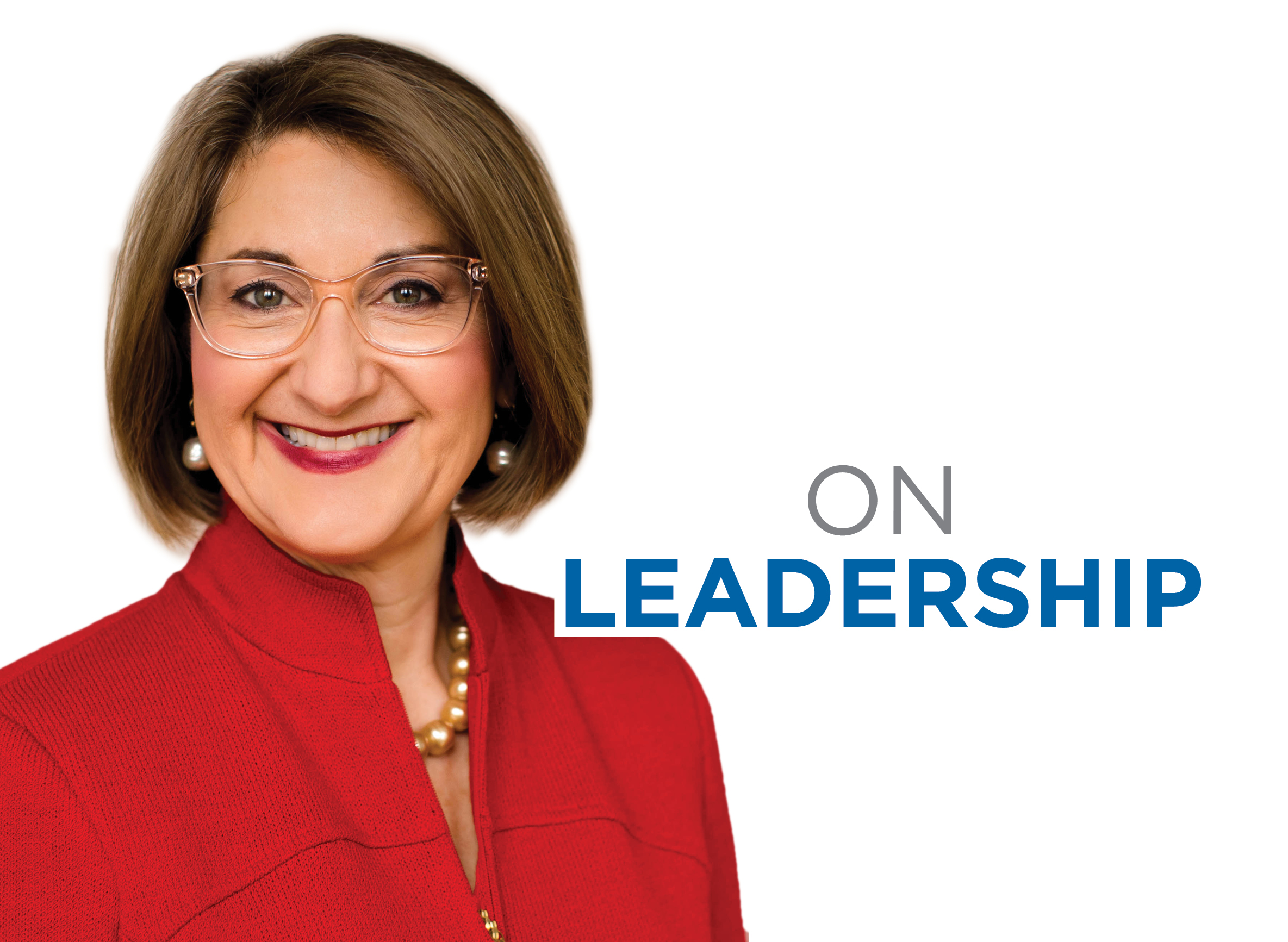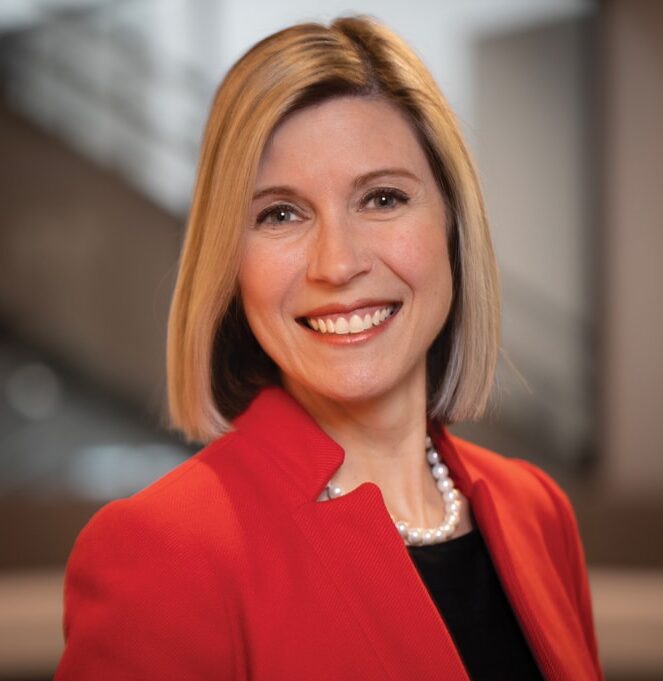On Leadership: Des Moines University CEO and Iowa Business Hall of Famer Dr. Angela Franklin on Transformational Leadership

This is part of an ongoing series on Transformational Leadership.
![Franklin Angela 07727 edit preferred[99]](https://www.businessrecord.com/wp-content/uploads/2024/09/Franklin_Angela_07727_edit-preferred99.jpg)
As she nears 14 years as president and CEO of Des Moines University, Dr. Angela L. Walker Franklin is now one of the longest-serving university presidents in the country. At a time when the average length of stay in a university presidency is six years, Dr. Franklin’s longevity is a testament to her vision, groundbreaking leadership and persistence.
“I am reminded daily of the joy I have in serving this organization and it feels surreal that I am still having fun in spite of the obvious long hours, travel, and never-ending challenges of leading an institution of higher learning,” Franklin said. “I can do so with a smile and commitment to serve because of an awesome board of trustees and a dedicated group of employees who are committed to the institution’s mission: ‘To improve lives in our global community by educating diverse groups of highly competent and compassionate health professionals.’”
Franklin, originally from South Carolina, often talks about her unconventional journey to becoming president of DMU. After earning a B.A. in psychology from Furman University and a Ph.D. in clinical psychology from Emory University and completing a fellowship at Grady Memorial Hospital in Atlanta, Franklin joined the Morehouse School of Medicine as an assistant professor, eventually becoming vice president for academic affairs. She then served as provost, executive vice president and acting president at Meharry Medical College in Tennessee. In 2011, Franklin became the 15th president of Des Moines University.
Franklin faced many challenges breaking new ground at DMU. As the first woman and first African American in the role, her credentials and credibility were questioned. Making bold changes to the status quo was also difficult, but Franklin persisted, fearlessly stewarding DMU through over a decade of transformation and steady advancement.
Under Franklin’s leadership, DMU has received national recognition among all U.S. medical schools as one of the top producers of much-needed primary care physicians. She has consistently led the university to exceed fundraising goals, including reaching $50 million for a campaign in 2024. She also led the university in building and moving its Des Moines campus to a new state-of-the-art 88-acre campus in West Des Moines in conjunctions with DMU’s 125th anniversary. In addition, Franklin has been a champion for the university to develop partnerships with Iowa health systems and other higher education institutions.
Franklin recounted her path to the presidency in her memoir, “An Unconventional Journey … An Unlikely Choice.” She will share more of her bold leadership journey in “Leadership From The Ground Up,” which will be released this month.
I recently caught up with Dr. Franklin to ask her about Transformational Leadership.
Who was someone you worked with or for who was a transformational leader?
Dr. Louis W. Sullivan, my primary mentor, is clearly my choice for the transformational leader who has most influenced my career. Dr. Sullivan was the founding dean and president of Morehouse School of Medicine, later serving as the secretary of the U.S. Department of Health and Human Services during President George H.W. Bush’s administration. My first position after completing my Ph.D. in clinical psychology was being hired as an assistant professor of psychiatry at Morehouse School of Medicine in the late 1980s. Dr. Sullivan was the president, and I was in awe with his bold leadership, having founded the new medical school at an Historically Black College or University (HBCU) at a time when there were limited resources yet long-standing challenges in adequately meeting the health care needs of underrepresented minority communities. The phrase “building something from scratch” was often used to describe the sweat equity and vision he had that came from realizing a dream and being bold in finding ways to achieve that dream.
Today, at the age of 90, Dr. Sullivan remains a friend and confidant as he has provided the support and encouragement from a distance to me as he helped me navigate my bold leadership journey. Dr. Sullivan spoke at my inauguration as president at DMU in 2011 and has returned to give the commencement address just a few years ago. He supported my career aspiration in leadership in higher education and nominated me for president and CEO positions over the years. It is because of him that I withdrew myself from a search for a university presidency in 2010 because he thought I was the “backup candidate.” He noted: “You do not need to play second fiddle to anyone,” and said: “You need to go where you are wanted.” After I withdrew from that search, the next call I received was from the search firm supporting Des Moines University, and they indicated they were looking for someone “just like me.” Thanks to Dr. Sullivan, I was ready to go “where I was wanted.”
What are some themes or key characteristics of Transformational Leaders?
I believe transformational leaders must first have a strong sense of self, not only feeling comfortable in their own skin, but also confident enough in their leadership approach that they do not fear being vulnerable, caring, and concerned for someone else.
The theory of servant leadership comes to mind, as this recognizes the passion to serve, not to be served. Being of service to an organization means you think of the impact of your engagement on the organization and its people. It’s seeing individuals as distinct, their roles and responsibilities as well integrated into the collective vision of the organization, and then empowering them to work in tandem, with a collaborative spirit to reach the goals of the organization. The Golden Rule as a backdrop also is a crucial ingredient as it reminds us to treat others the way we ourselves would like to be treated – with respect and kindness.
In looking at your career, knowing what you know now, how or when do you wish you might have approached leadership differently?
I think I learned a great deal about timing and patience along the way. As a new leader, you often come into an organization hoping to bring your knowledge and strength to make a positive impact on the organization. Most will assume you are well equipped to lead as having met the basic criteria for the job responsibilities. However, how you engage with the community and how they begin to see you as a person – not as a role – is more important than any listing of skills, experiences, or achievements from the past. No matter how much you try to be your authentic self, others will see something else … good or bad, often leaving you with a blind spot that can impact your ability to lead. Taking the time to be seen, to listen, to show sincere concern for others, is a necessary step. Whereas you may think you are doing it, find out if others will affirm what you think is true.
How have you been a Transformational Leader – or how do you aspire to be one in the future?
I came to Des Moines University in March 2011 with a sincere desire to be of service to this great organization. I had prepared myself professionally for a role like this and truly believed the timing was right and I was “called to lead.” With my servant leadership philosophy and the Golden Rule firmly imprinted in my upbringing, I came to give it my best. I dreamed big for this institution and worked hard to create a collective vision for the future.
The challenges beyond the honeymoon phase of any new leader are real! I put my “body armor” on, stayed the course, and worked hard to build positive relationships with the board, faculty, staff, students, alumni and the community. Dreaming big for me meant taking bold steps to shift out of a comfort zone to try new approaches. With each new step, there was the next challenge. The biggest, most fearless step was making a bold decision to relocate DMU to build an entirely new campus, from the ground up, on 88 acres of purchased farmland in West Des Moines. That bold move was made in 2019; we broke ground on the new campus in September 2020 – in the middle of the pandemic – and we moved into our new campus in the summer of 2023. ν
Dr. Franklin has been honored with numerous awards, including the 2013 African American History Maker Award from the African American Museum of Iowa, the 2014 Women of Influence Award from the Des Moines Business Record, the 2014 Inspire Award from Dress for Success, the 2015 Mary McLeod Bethune Award (Educator of the Year) from the Iowa Juneteenth Observance Committee, the 2016 Martin Luther King Jr. Achievement Award from the Iowa Department of Human Rights, the 2017 American Psychological Association Training Advisory Committee Special Award, and the 2022 Dale S. Dodson Award from the American Association of Colleges of Osteopathic Medicine. In 2021, Dr. Franklin was inducted into the Iowa Business Hall of Fame.







